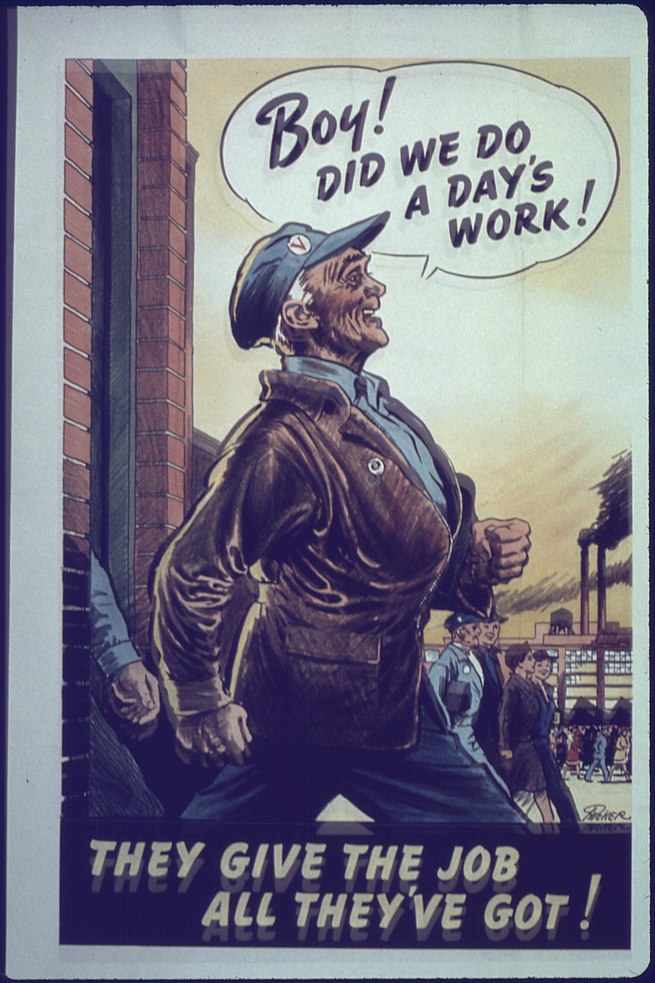Main Difference
The main difference between Job and Profession is that the Job is a role of a person in a society and Profession is a vocation founded upon specialized educational training.
-
Job
A job, or occupation, is a person’s role in society. More specifically, a job is an activity, often regular and often performed in exchange for payment (“for a living”). Many people have multiple jobs (e.g., parent, homemaker, and employee). A person can begin a job by becoming an employee, volunteering, starting a business, or becoming a parent. The duration of a job may range from temporary (e.g., hourly odd jobs) to a lifetime (e.g., judges).
An activity that requires a person’s mental or physical effort is work (as in “a day’s work”). If a person is trained for a certain type of job, they may have a profession. Typically, a job would be a subset of someone’s career. The two may differ in that one usually retires from their career, versus resignation or termination from a job.
-
Profession
A profession is a vocation founded upon specialized educational training, the purpose of which is to supply disinterested objective counsel and service to others, for a direct and definite compensation, wholly apart from expectation of other business gain. The term is a truncation of the term “liberal profession”, which is, in turn, an Anglicization of the French term “profession libérale”. Originally borrowed by English users in the 19th century, it has been re-borrowed by international users from the late 20th, though the (upper-middle) class overtones of the term do not seem to survive retranslation: “liberal professions” are, according to the European Union’s Directive on Recognition of Professional Qualifications (2005/36/EC) “those practiced on the basis of relevant professional qualifications in a personal, responsible and professionally independent capacity by those providing intellectual and conceptual services in the interest of the client and the public”.
Medieval and early modern tradition recognized only three professions: divinity, medicine, and law – the so-called “learned professions”.
Major milestones which may mark an occupation being identified as a profession include:
an occupation becomes a full-time occupation
the establishment of a training school
the establishment of a university school
the establishment of a local association
the establishment of a national association of professional ethics
the establishment of state licensing laws
Applying these milestones to the historical sequence of development in the United States shows surveying achieving professional status first (note that George Washington, Thomas Jefferson, and Abraham Lincoln all worked as land surveyors before entering politics), followed by medicine, actuarial science, law, dentistry, civil engineering, logistics, architecture and accounting.
With the rise of technology and occupational specialization in the 19th century, other bodies began to claim professional status: mechanical engineering, pharmacy, veterinary medicine, psychology, nursing, teaching, librarianship, optometry and social work, each of which could claim, using these milestones, to have become professions by 1900.
Just as some professions rise in status and power through various stages, others may decline. Disciplines formalized more recently, such as architecture, now have equally long periods of study associated with them.
Although professions may enjoy relatively high status and public prestige, not all professionals earn high salaries, and even within specific professions there exist significant inequalities of compensation; in law, for example, a corporate/insurance defense lawyer working on a billable-hour basis may earn several times what a prosecutor or public defender earns.
-
Job (noun)
A task.
“I’ve got a job for you – could you wash the dishes?”
“A job half done is hardly done at all.”
-
Job (noun)
An economic role for which a person is paid.
“That surgeon has a great job.”
“He’s been out of a job since being made redundant in January.”
-
Job (noun)
Plastic surgery.
“He had had a nose job.”
-
Job (noun)
A task, or series of tasks, carried out in batch mode (especially on a mainframe computer).
-
Job (noun)
A sudden thrust or stab; a jab.
-
Job (noun)
A public transaction done for private profit; something performed ostensibly as a part of official duty, but really for private gain; a corrupt official business.
-
Job (noun)
Any affair or event which affects one, whether fortunately or unfortunately.
-
Job (noun)
A thing (often used in a vague way to refer to something whose name one cannot recall).
“Pass me that little job with the screw thread on it.””
-
Job (verb)
To do odd jobs or occasional work for hire.
-
Job (verb)
To work as a jobber.
-
Job (verb)
To take the loss.
-
Job (verb)
To buy and sell for profit, as securities; to speculate in.
-
Job (verb)
To subcontract a project or delivery in small portions to a number of contractors.
“We wanted to sell a turnkey plant, but they jobbed out the contract to small firms.”
-
Job (verb)
To seek private gain under pretence of public service; to turn public matters to private advantage.
-
Job (verb)
To strike or stab with a pointed instrument.
-
Job (verb)
To thrust in, as a pointed instrument.
-
Job (verb)
To hire or let in periods of service.
“to job a carriage”
-
Profession (noun)
A promise or vow made on entering a religious order.
“She died only a few years after her profession.”
-
Profession (noun)
A declaration of belief, faith or of one’s opinion.
“Despite his continued professions of innocence, the court eventually sentenced him to five years.”
-
Profession (noun)
An occupation, trade, craft, or activity in which one has a professed expertise in a particular area; a job, especially one requiring a high level of skill or training.
“My father was a barrister by profession.”
-
Profession (noun)
The practitioners of such an occupation collectively.
“His conduct is against the established practices of the legal profession.”

